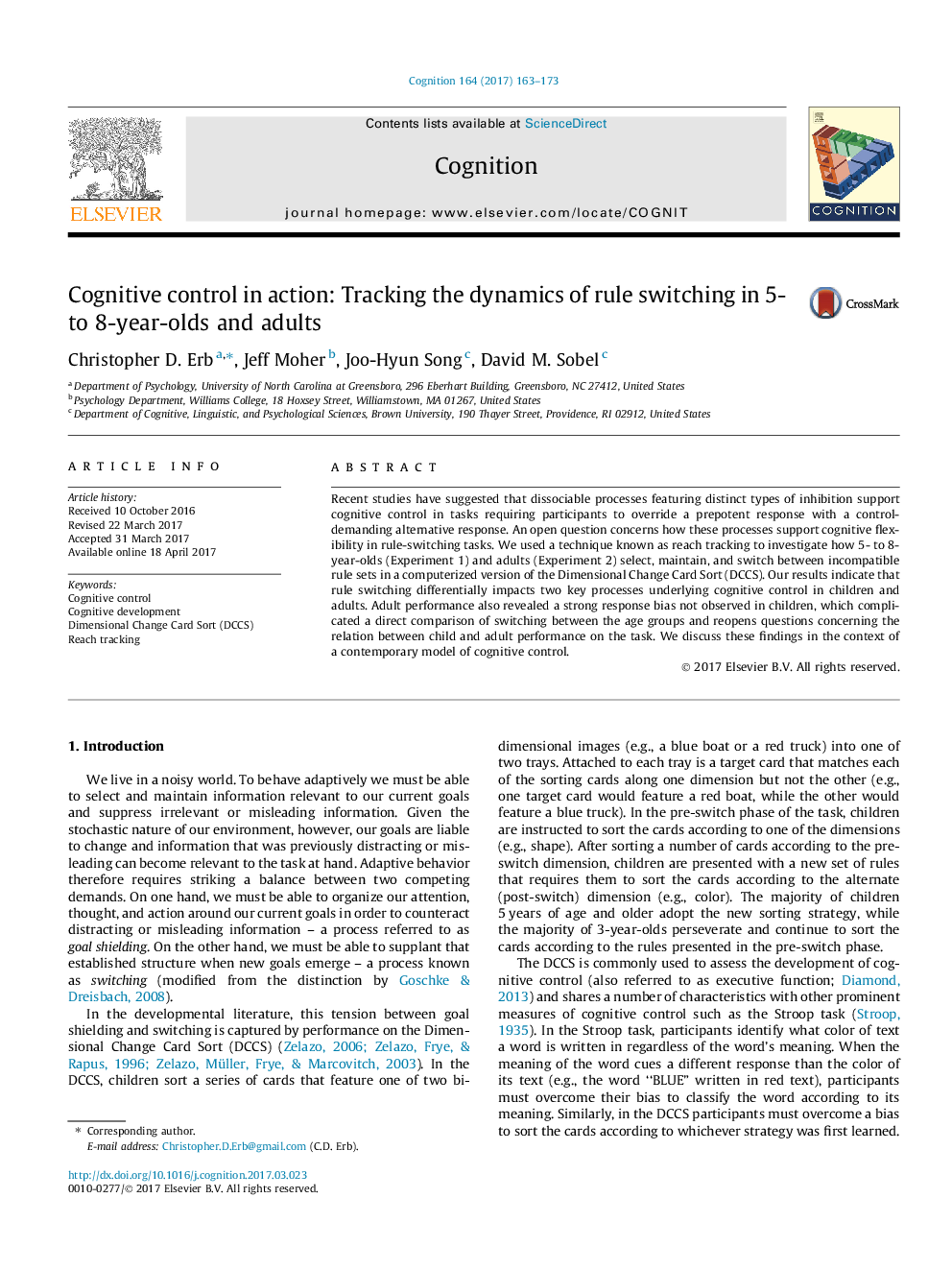| Article ID | Journal | Published Year | Pages | File Type |
|---|---|---|---|---|
| 5041607 | Cognition | 2017 | 11 Pages |
Recent studies have suggested that dissociable processes featuring distinct types of inhibition support cognitive control in tasks requiring participants to override a prepotent response with a control-demanding alternative response. An open question concerns how these processes support cognitive flexibility in rule-switching tasks. We used a technique known as reach tracking to investigate how 5- to 8-year-olds (Experiment 1) and adults (Experiment 2) select, maintain, and switch between incompatible rule sets in a computerized version of the Dimensional Change Card Sort (DCCS). Our results indicate that rule switching differentially impacts two key processes underlying cognitive control in children and adults. Adult performance also revealed a strong response bias not observed in children, which complicated a direct comparison of switching between the age groups and reopens questions concerning the relation between child and adult performance on the task. We discuss these findings in the context of a contemporary model of cognitive control.
